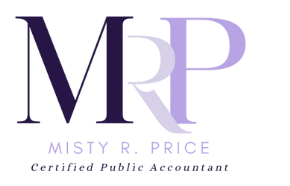
Need help?
352-247-4373
Click

352-247-4373
For Florida business owners, filing your Tangible Personal Property (TPP) tax return can be a confusing and time-consuming task. Though many businesses end up paying little or no tax—thanks to the $25,000 exemption—properly reporting your fixed assets is still required to ensure you remain compliant and avoid penalties. As a Florida-licensed Certified Public Accountant (CPA), I’m here to streamline this process for you, so you can focus on growing your business.
Tangible personal property generally includes movable items that you use for business purposes, such as office furniture, computers, equipment, and tools. Even if these items are fully depreciated for income tax purposes, they may still be reportable on your TPP tax return. Assets that don’t have to be reported include real estate, personal items unrelated to the business, and vehicles used for regular transportation.
All Florida Businesses: If you file a business tax return or operate as a sole proprietor (often filing a Schedule C), you may need to file a TPP return.
All Locations: You must file a separate return for each Florida location where your business operates, even if they’re in the same county or within your home.
First-Year Requirement: Businesses in their first year must file, regardless of asset values. Subsequent filing requirements may be waived if the assessed value of your tangible property remains below $25,000 and your local property appraiser grants an ongoing exemption.
One of the primary reasons many small businesses owe no tangible property taxes is the $25,000 exemption on the assessed value of tangible property. However, you must file the return to claim this exemption, at least in your first year. If your county property appraiser later confirms that your assets are consistently under the threshold, you may qualify for a waiver in future years—unless you move or expand to a new location, at which point you must file again.
The TPP return (Form DR-405) is due by April 1 each year.
You can request a one-month extension—typically granted until May 1—by March 31, but the extension process varies by county. Check your county appraiser’s website for specific forms and procedures.
Filing late triggers a penalty of 5% of the total tax owed per month, up to 25%. If the property appraiser discovers unlisted items, an additional 15% penalty may apply to those unreported assets.
Compile an accurate list of all business assets, including equipment, office furniture, and any leased items.
Record the amount paid for these assets at the time of purchase.
You may file electronically (if your county allows it) or by paper. Accuracy is crucial since your county’s property appraiser will use this information to assess your taxes.
Mail or electronically file your return with the appropriate county appraiser’s office. Use certified mail if filing by paper, so you have a record of submission.

Filing a Tangible Personal Property tax return in Florida can be overwhelming without proper guidance. I provide:
Ensuring you identify and list the right assets, including items that are fully depreciated but still require reporting.
Reviewing your records to confirm the original installed costs match your financial documents.
Helping you understand when you need to refile if you move or expand operations, and clarifying which items might qualify for exemptions.
Keeping you on schedule and assisting with any necessary extension filings to avoid penalties.
By partnering with an experienced CPA, you can rest assured that your TPP returns are filed correctly and on time—whether you owe tangible personal property tax or simply need to confirm that your business qualifies for the exemption.